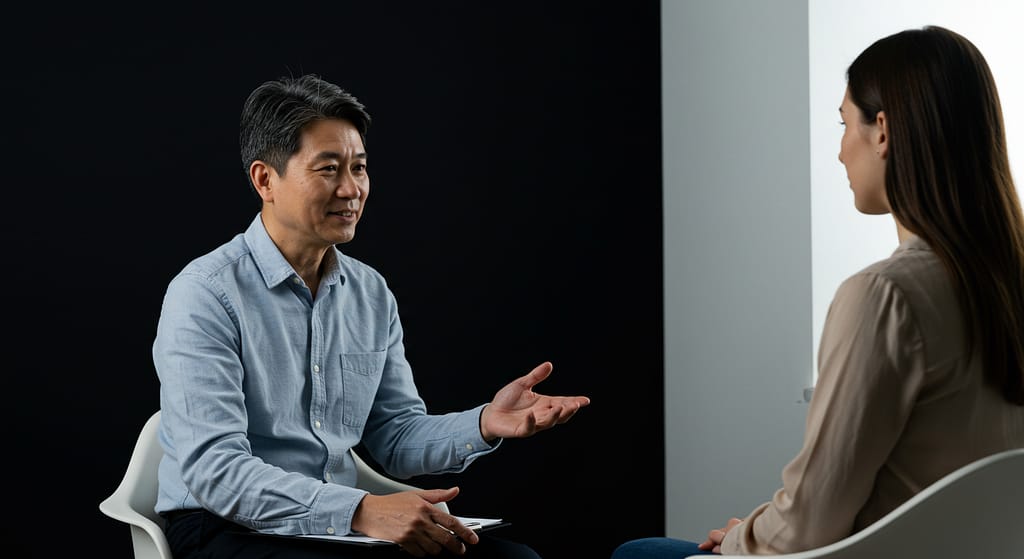Table of Contents
- Introduction: Treating Depression Effectively
- Understanding the Role of Health Providers
- Levels of Depression
- The Good News: Depression Is Treatable
- Psychotherapy: Talk Therapy Options
- Medication for Depression
- Final Thoughts
Introduction: Treating Depression Effectively
Depression affects millions worldwide and can disrupt every aspect of life. Understanding how depression is treated helps people regain control, improve well-being, and prevent complications. With the right professional guidance, therapy, and lifestyle support, recovery is achievable.

External resource: Mayo Clinic – Depression Treatment provides in-depth guidance on evidence-based treatment methods.
Understanding the Role of Health Providers
Healthcare providers play a crucial role in identifying and managing depression. Mild to moderate cases may be handled by general practitioners, physician assistants, or nurse practitioners. In more severe cases, specialists are involved:
- Psychiatrists: Diagnose mental illnesses, provide therapy, and prescribe medications.
- Psychologists: Offer counseling, psychotherapy, and psychological assessments.
- Psychiatric Nurse Specialists: Registered nurses trained in mental health care.
- Social Workers: Provide emotional support, guidance, and resources.
Evaluation usually includes a review of symptoms, medical history, family mental health background, and lab tests to rule out other causes.
Levels of Depression
Healthcare providers categorize depression into three levels:
- Mild: Some symptoms are present but daily functioning is possible with effort.
- Moderate: Symptoms interfere significantly with everyday tasks and responsibilities.
- Severe: Nearly all symptoms are present, making normal functioning extremely difficult.
Regardless of severity, depression should never be ignored. It is a real, diagnosable condition that requires timely attention.
The Good News: Depression Is Treatable
Depression is among the most treatable mental health conditions. Studies show that over 80% of patients improve significantly with proper treatment—even those with severe symptoms. Common treatment approaches include:
Psychotherapy: Talk Therapy Options
Cognitive Behavioral Therapy (CBT)
CBT is a highly recommended short-term therapy (8–12 sessions) that targets negative thought patterns like:
- All-or-nothing thinking
- Overgeneralization
- Excessive self-blame
Patients learn to replace unhealthy thought patterns with constructive ones, often journaling daily for reflection.
Interpersonal Therapy (IPT)
IPT focuses on improving social relationships and communication. It is particularly effective for depression caused by interpersonal conflicts. Patients develop emotional expression and conflict-resolution skills.
Family or Couples Therapy
When family dynamics affect mental health, joint therapy sessions help rebuild communication, mutual support, and understanding.
Psychodynamic Therapy
Although less common due to limited research, this long-term therapy explores unconscious thoughts and past traumas to address underlying causes of depression.
Medication for Depression
Medication is often combined with therapy for maximum benefit. Common classes include:
- SSRIs (Selective Serotonin Reuptake Inhibitors)
- SNRIs (Serotonin and Norepinephrine Reuptake Inhibitors)
- MAOIs (Monoamine Oxidase Inhibitors)
- Tricyclic Antidepressants
Not every medication works the same for everyone. Some may need to try multiple options or combinations. Important: Never stop or switch medications without consulting your doctor.
External resource: National Institute of Mental Health – Depression Medications for detailed guidance.
Final Thoughts
Depression is serious, but it is not a life sentence. With professional support, therapy, medication, and lifestyle strategies, most people recover fully and lead meaningful lives. Early treatment improves outcomes, reduces suffering, and strengthens resilience.
If you or a loved one is experiencing depression, reach out for help today. You are not alone—healing is possible.
Internal links: Consider connecting this blog with Symptoms of Depression and Tips to Eradicate Depression for a complete guide on awareness and treatment.
